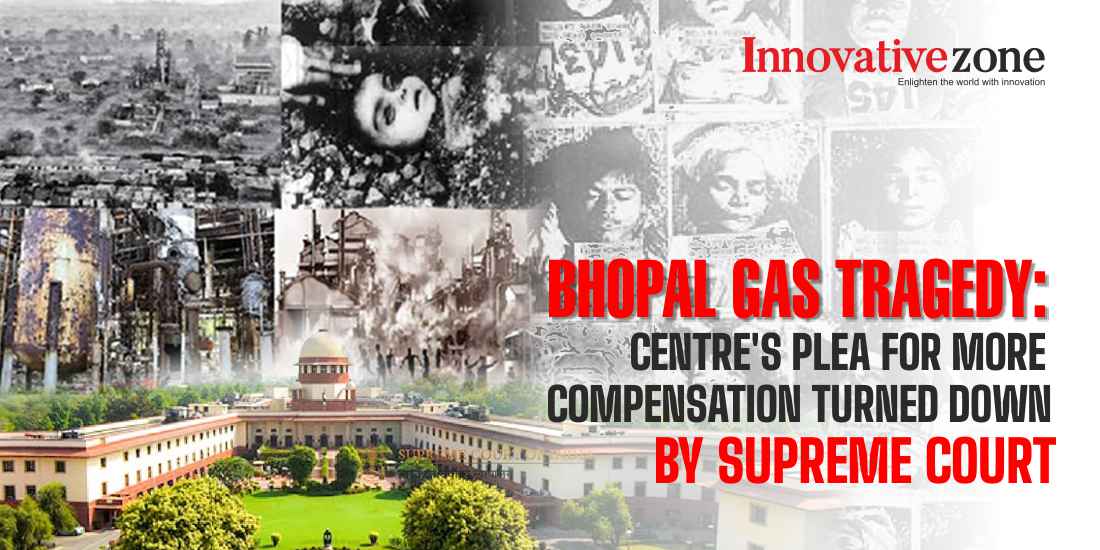Bhopal Gas Tragedy: Centre’s Plea for More Compensation Turned Down by Supreme Court
Written by Sanjay Kumar
The Centre’s request for increased compensation for the victims of the 1984 Bhopal Gas tragedy from Union Carbide Corporation (UCC) was rejected by the Supreme Court. The court rather asked the government to utilise a sum of INR 50 crore lying with the Reserve Bank of India (RBI) to satisfy pending claims of victims.
The government had previously opposed attempts by private parties to obtain additional compensation but sought an additional INR 7,844 crore from UCC successor firms to provide higher compensation to the victims of the Bhopal gas tragedy that killed more than 3,000 people and caused environmental damage.
The Supreme Court criticized the government for raising the issue two decades after the settlement was reached. The bench stated that it was dissatisfied with the Union of India for not providing a rationale for raising the issue again and that curative petitions could not be entertained.
According to PTI, a curative petition is the last resort for a plaintiff after an adverse judgment has been delivered and the plea for review has been rejected. The Centre had not filed a review petition for rescinding the settlement which it now wants to be enhanced.
What was the 1984 Bhopal Gas tragedy?
Bhopal disaster
Accident
- Start date: 2 December 1984
- Location: Bhopal
- Non-fatal injuries: At least 558,125
- Also known as: Bhopal gas tragedy
The 1984 Bhopal Gas Tragedy was a disaster that occurred in the city of Bhopal, located in the central Indian state of Madhya Pradesh. In the early morning hours of December 3, 1984, a pesticide plant owned and operated by the Union Carbide Corporation (UCC), an American company, leaked toxic gas into the surrounding environment.
The gas release resulted in the immediate death of thousands of people and caused severe health problems for hundreds of thousands of others. Estimates of the number of people who died in the tragedy range from several thousand to as many as 16,000, with tens of thousands more injured.
The immediate cause of the gas release was a combination of human error and equipment malfunction. Water entered one of the plant’s storage tanks containing a chemical called methyl isocyanate (MIC), which caused a reaction that resulted in the release of the toxic gas. The plant’s safety systems failed to prevent the gas from escaping into the atmosphere.
The Bhopal Gas Tragedy is widely considered to be one of the worst industrial disasters in history. It had a profound impact on the affected individuals and their families, as well as on the people of India as a whole. The incident raised questions about the regulation of multinational corporations, the role of government in protecting citizens from industrial hazards, and the ethics of corporate responsibility.
Must Read:-
- Top 10 Largest Oceans and Seas in the World
- Top 10 automobile companies in India 2023
- Top 10 Electrical Companies in India 2023
- Top 10 Real Estate Companies in India-2023
- Top 10 most awaited & upcoming Hindi web series 2023-24
- Top 10 Clothing Brands in India 2023
- Top 10 best cultures in the world-2023
- Top 10 best country to work and live in 2023
- Top 10 best country for education 2023
- Top 10 Most Followed Celebrities on Instagram 2023


